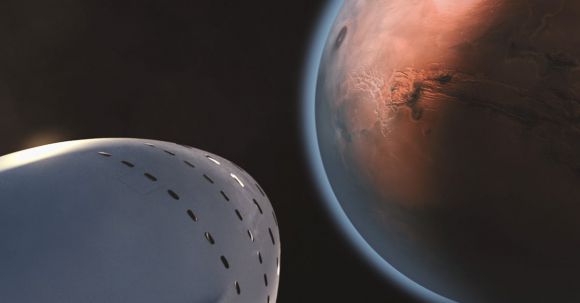Mars has long been a source of fascination and wonder for scientists and space enthusiasts alike. Its potential for human colonization has been a topic of much debate and speculation. Over the years, significant advancements have been made in our understanding of the red planet and our ability to send humans there. In this article, we will explore the current state of our progress and answer the question: How close are we to colonizing Mars?
The Search for Life on Mars
Before we can even consider colonizing Mars, we must first determine whether life exists there. Numerous missions, including the Mars rovers, have been sent to the planet to search for signs of life. While no conclusive evidence has been found, there have been intriguing discoveries, such as the presence of water ice and the detection of methane in the Martian atmosphere. These findings suggest that Mars may have once had the conditions necessary for life to exist.
The Challenges of Mars Colonization
Colonizing Mars is no easy feat. The planet’s harsh environment presents numerous challenges that need to be overcome. Mars has a thin atmosphere, extreme temperatures, and high levels of radiation. Additionally, the lack of a magnetic field means that the planet is not protected from solar flares and cosmic rays. These factors make it difficult for humans to survive on Mars without the proper equipment and infrastructure.
Advancements in Space Technology
Despite the challenges, significant advancements have been made in space technology that bring us closer to colonizing Mars. SpaceX, the private space company founded by Elon Musk, has been at the forefront of these efforts. They have developed the Falcon Heavy rocket, which has the capability to send large payloads to Mars. SpaceX is also working on the Starship, a fully reusable spacecraft that could transport humans to the red planet.
NASA’s Artemis program is another important initiative that aims to return humans to the moon by 2024. This program will not only help us learn more about living and working in space but also serve as a stepping stone for future missions to Mars. NASA is also developing the Space Launch System, a powerful rocket that will be used to send astronauts to Mars and beyond.
The Importance of International Collaboration
Colonizing Mars is a monumental task that requires international collaboration. No single country or organization can achieve it alone. The International Space Station (ISS) serves as an excellent example of successful international cooperation in space exploration. Similarly, future missions to Mars will require the combined efforts of multiple nations, each contributing their expertise and resources. Collaborative efforts can help share the costs and risks involved and accelerate progress towards the goal of colonizing Mars.
The Future of Mars Colonization
While we have made significant progress, colonizing Mars is still a long way off. Many technological, logistical, and ethical challenges need to be addressed. However, with the continued advancements in space technology and the growing interest from both public and private sectors, it is not an impossible dream. The colonization of Mars will likely be a gradual process, starting with the establishment of a scientific research outpost and gradually expanding to a self-sustaining colony.
In conclusion, the question of how close we are to colonizing Mars is a complex one. While significant advancements have been made, there are still many challenges to overcome. The search for life on Mars, advancements in space technology, international collaboration, and the gradual development of infrastructure are all crucial factors in our journey to colonize the red planet. With continued dedication and innovation, we may one day see humans living and thriving on Mars.





